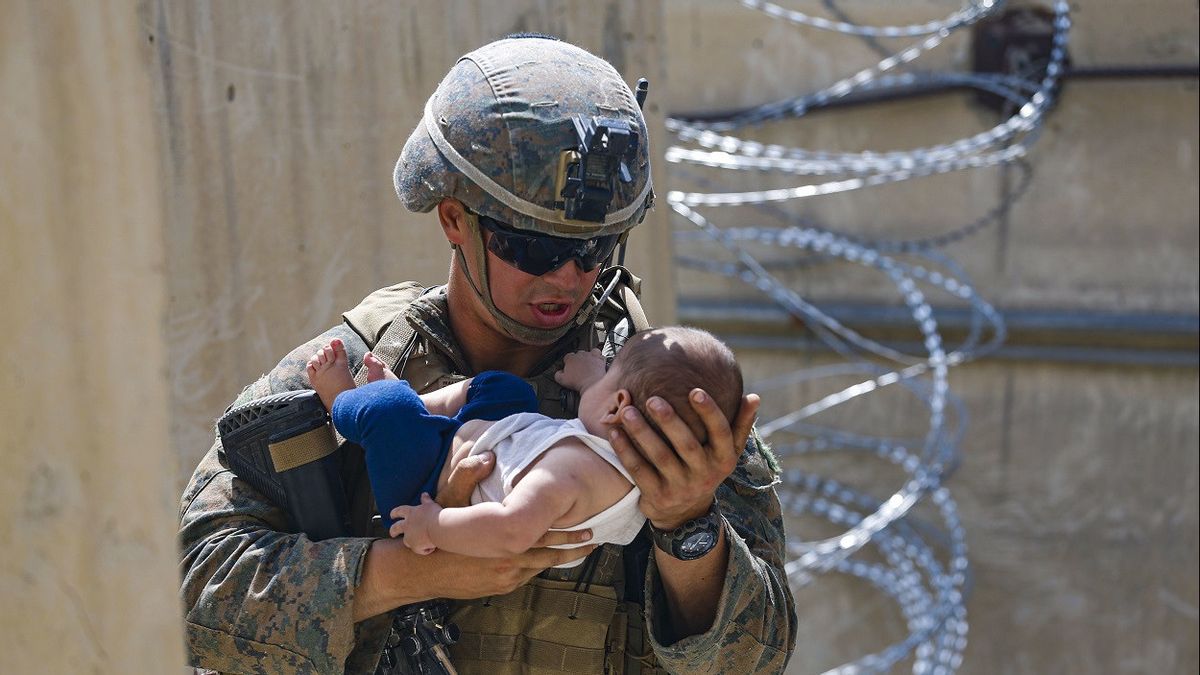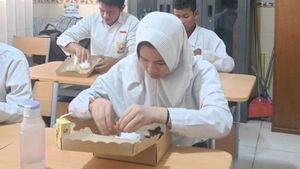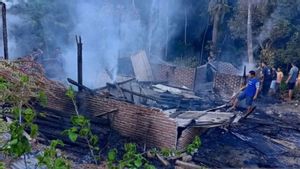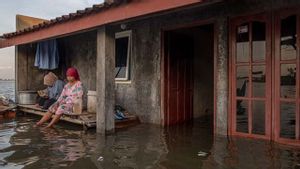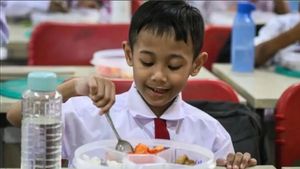JAKARTA - Ahmad Khalil Mayan, program director at a large orphanage in Kabul, said he is reducing the amount of fruit and meat he gives children each week because the house is running out of money.
Over the past two months, since the Afghan Taliban took control of the country and millions of dollars in aid suddenly stopped, he has been desperately calling and emailing donors, both foreign and local, who had previously supported him.
"Unfortunately, most of them have left the country, Afghan donors, foreign donors, embassies. When I call them or email them, no one answers me," Mayan, 40, told Reuters in the Shamsa Children's Village which area north of the capital, as quoted October 15.
"We are now trying to run the place with less money and with less food," he added.
There are about 130 children aged three years and over in this orphanage. Operating for more than a decade, this orphanage provides a shelter for those who have lost both parents, or just one who is unable to look after them.

One of them is nine-year-old Samira, from the northeastern Badakhshan Province who has been in an orphanage for almost two years after her father died and her mother had no means to support her siblings.
In the playground outside on a cool Kabul day he played with as much intensity as he studied, grinning widely as he climbed the swing higher. Despite his young age, he has already taken additional classes and wants to become a doctor when he grows up.
"I want to serve my homeland and save others from disease. I also want other girls to study, so that they become doctors like me in the future," she told Reuters, with a coy smile.
Orphanages like these play a huge role in Afghanistan, where tens of thousands of civilians have died in the war that has ravaged the country for more than 40 years.
The lack of funding, which has hit charities, non-governmental organizations and ordinary Afghans alike since the hardline Taliban movement took back control of the country, forced Maya into tough choices.
The orphanage tried to send some of the children back to relatively wealthy relatives, but one by one they had returned.
Maya said staff should reduce food portions and limit the types of food children eat.

"Before we gave them fruit twice a week and meat twice a week, but we cut that stuff down to just once a week or maybe not (that much)," he said.
Facing an economic crisis as winter approaches, Taliban officials have urged Western governments to continue with aid donations, calling on the United States to withdraw the block of more than $9 billion of Afghanistan's central bank reserves held overseas.
Many countries have refused to recognize the Taliban, which until recently were jihadist insurgents fighting foreign forces and their Afghan allies.
Some governments have demanded that the group guarantee basic civil liberties, including allowing girls to attend secondary school and women to work.
Adding to the orphanage's problems is the weekly $200 limit for bank withdrawals to avoid running out of cash, meaning access to funds is insufficient to support children and staff.
Maya was worried that if the situation continued, the orphanage would not be able to function much longer.
It will destroy children, who receive lessons in math, English and computers as well as physical education, not to mention food and shelter.
Samira, an aspiring doctor, is still able to attend school outside the orphanage because of her age, and she takes extra classes in the afternoon to progress.
Difficulties did not undermine his ambition, but he also realized that in order to achieve his goals, he might have to go abroad to study.
"I'm not allowed to study here," he said firmly.
The English, Chinese, Japanese, Arabic, and French versions are automatically generated by the AI. So there may still be inaccuracies in translating, please always see Indonesian as our main language. (system supported by DigitalSiber.id)
